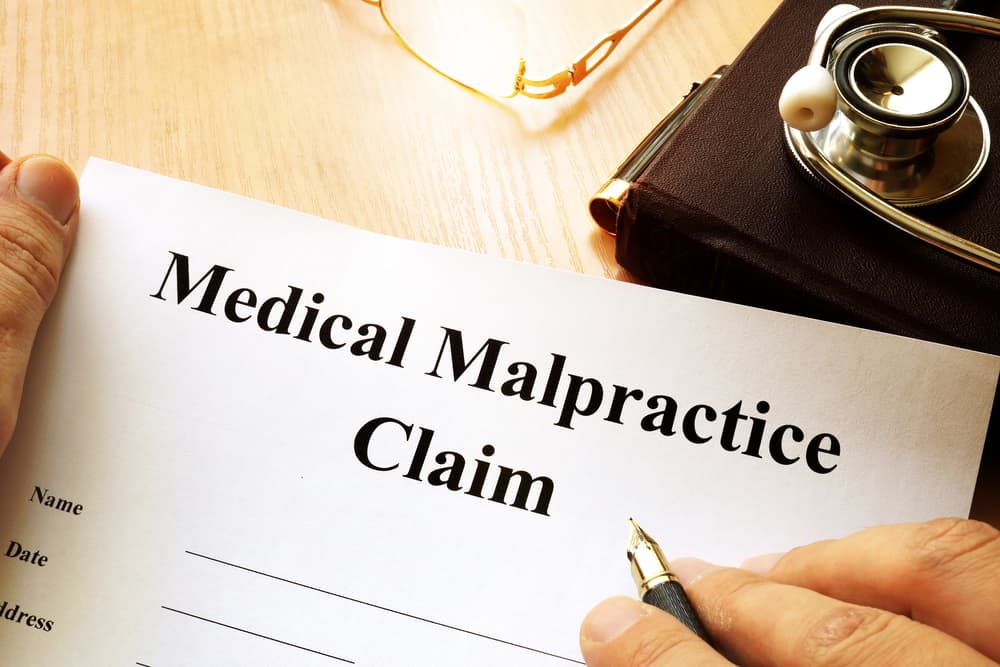

8 Most Usual Types Of Clinical Negligence Cases Atlanta, Ga Malone Legislation Clinical Negligence And Communicable Disease Reporting Severe Injury Lawyers A postponed medical diagnosis can be unsafe because a person will certainly not get the treatment they need quickly, leading to unnecessary suffering. Relying on the length of time it takes the physician to appropriately detect the individual, the results could be fatal. Also if not fatal, the patient's condition can get worse because of a postponed diagnosis. Unlike misdiagnosis, failing to deal with happens when the client is appropriately identified, yet that medical diagnosis is never ever followed through on. This includes discharging a patient too soon, not supplying the appropriate follow-up treatment, or not supplying the requirement of care needed for their specific condition. Medical malpractice is a big, ongoing problem in the United States, one that is typically neglected. The negligence lawyers in Philadelphia at Raynes & Lawn can meet with you and assist you to understand whether you have a feasible insurance claim and your next steps. Here are six usual sorts of medical negligence that occasionally occur in Pennsylvania. Discontinuing a suggested drug without your doctor's advice can cause injury or death. Appraisal depends on realities, injuries, territory, location, witnesses, events, and statement, to name a few elements.
- However if the crack went on to uneventful healing in spite of the incorrect therapy and the person pleaded injury from this therapy however without proving of real problems, there would be nothing for the court to award.The standard of treatment normally calls for the doctor to physically analyze the person, analyze the X-rays, set the bone, monitor the client, and prepare the person for physical treatment once the bone heals.An experienced medical negligence attorney can make a considerable difference in the result of a situation.Call us today to set up a consultation and learn more about exactly how we can sustain you in seeking the payment and justice you are worthy of.Falling short to get appropriate informed consent prior to executing a treatment can be premises for a malpractice claim.
Can I Take Legal Action Against A Medical Facility Itself For A Medical Error?
What is the ordinary settlement for legal negligence?
Using this method, an attorney will collect all of the economic damages their client sustains and then increase this by an established number, normally a number ranging from 1.5 to 5. Negligence: Medical negligence cases, like all accident cases, are based upon negligence. To have a successful malpractice insurance claim, you need to prove the physician or health care employee was irresponsible. In order to make a medical negligence case rewarding to pursue, the instance ought to have around & #x 24; 125,000 to & #x 24; 150,000 in verifiable problems. Since just permits the healing of offsetting problems, an individual must have a significant and long-term injury to justify waging a clinical negligence instance. Emergency situation medicine is the primary doctor specialized with highest fatigue. This field reports among the highest stress and anxiety levels because of its high-paced, high-acuity environment. Sadly, nobody is unsusceptible making a mistake. If this occurs, and a person is harmed therefore, resolving the instance may be one of the most fitting selection. Settling an instance also avoids the anxiety, expense, and unpredictability of a trial. Many medical malpractice situations get solved with an out-of-court settlement. Just a couple of of these cases get to trial. Actually, just 5%of medical malpractice lawsuits resolve through a trial decision, suggesting as lots of as 95%of medical negligence instances settle prior to test. Misdiagnosis or delayed diagnosis.Failure to treat.Prescription medicine errors.Surgical or step-by-step errors.Childbirth injuries. How Commonly Do Negligence Cases Go To Trial? According to the United State Division of Justice, just 7 %of medical negligence claims are taken to trial. That implies the vast majority, over 90%, are resolved with negotiations out of court. Duty: The Doctor-Patient Partnership. The first "D" is duty.Dereliction: When Treatment Falls Short. The 2nd "D," dereliction, occurs when medical professionals stop working to meet their duty of care.Direct Reason: Linking the Blunder to Your Harm.Damages: The Harm You have actually Suffered. According to one large-scale research study of clinical malpractice insurance claims, medical professionals win: 80 to 90 percent of jury trials entailing weak evidence of clinical neglect. 70 percent of court trials in borderline instances. 50 percent of cases with strong proof of clinical carelessness. To do so, four legal elements need to be proven:(1) an expert obligation owed to the patient; (2)breach of such obligation;(3) injury caused by the breach; and(4) resulting problems.